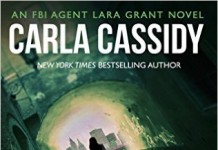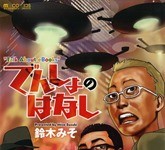 From using computers to examine students taking tests, we move on to using computers to examine the books authors write. Because there are just so darned many of them, after all, that who could possibly read them all anymore?
From using computers to examine students taking tests, we move on to using computers to examine the books authors write. Because there are just so darned many of them, after all, that who could possibly read them all anymore?
At least, that’s what Franco Moretti, one of the chief proponents of a new form of study called “digital humanities,” seems to think. Publishing Perspectives has an interesting article looking at Moretti’s work in using computers to analyze stories digitally, and the criticism he’s gotten from others who feel this effort is misguided.
Franco Moretti (together with Lev Manovich) is undoubtedly the most audacious among the exponents of this much-debated discipline. He strongly believes that it is not only possible, but also desirable to understand literature without studying literary texts. The point is to gather massive amounts of data in order to detect hidden patterns that close reading does not reveal. We need “distant reading,” Moretti argues, because its opposite, close reading, can’t uncover the true scope and nature of literature.
As a New York Times article linked in that piece notes, the idea is intriguing, but it falls short in the same place any effort designed to use statistics to analyze the works of people falls short. People aren’t statistics. While some of what they do in the aggregate can be analyzed statistically, when you try to zoom in from that to individuals, things get messy.
While there might be useful things to learn from this kind of analysis—after all, no person can hope to read sixty thousand novels himself, at least not in less than a lifetime, so any comparison among every single one of those works has to be done by computer—it doesn’t seem to me that it’s any substitute for attempting to understand a smaller subset in depth with the good old Mark 1 brain.
Computers are great for quantifying things, like figuring out what words are used the most or least, and possibly even analyzing how grammar changes over time. But they can’t tell us what things mean. That’s always going to require the personal touch.

































Sorry, but that “distant reading,” reminds me of the words that J. R. R. Tolkien put in the mouth of Gandalf: “He that breaks a thing to find out what it is has left the path of wisdom.”
Here is how that distant reading is defined:
“As its name suggests, the Lit Lab tackles literary problems by scientific means: hypothesis-testing, computational modeling, quantitative analysis. Similar efforts are currently proliferating under the broad rubric of “digital humanities,” but Moretti’s approach is among the more radical. He advocates what he terms “distant reading”: understanding literature not by studying particular texts, but by aggregating and analyzing massive amounts of data.”
In other words, don’t read books, instead use computers to break them down into raw data. For me that’s like the old scifi stories where in a supposedly enlightened future we don’t dine on food, we swallow pills with all the nutrients we need.
—-
I forget if I posted this here or not, but it does illustrate in a more positive way how computers can be used to understand children’s books.
If you intend to write children’s books that’ll be adopted by schools, you might want to look into getting one or more of the grade-level measurements that educators use. One that seems to have a lot of support is called Lexile. Many children’s books on Amazon come with a “Lexile Measure” next to the “Grade Level.” Here’s an example:
http://www.amazon.com/Harry-Potter-Sorc … 59035342X/
Writers who’d like to get a certified Lexile measure for their books can find the details here:
https://www.lexile.com/about-lexile/pub … e-process/
The usual price per title for tradebooks under 150 pages is $30, which isn’t bad if you intend to market the book to educators who like that sort of thing. You can find a long list of publishers who use the service here:
https://www.lexile.com/about-lexile/how … -doing-it/
——
If you’d just like to get an idea of what level you’re writing at, try one of the free online sites such as:
https://readability-score.com
The results will vary. What I wrote above gets grade levels varying from almost the fifth to the early eighth grade.
Good luck with your books!